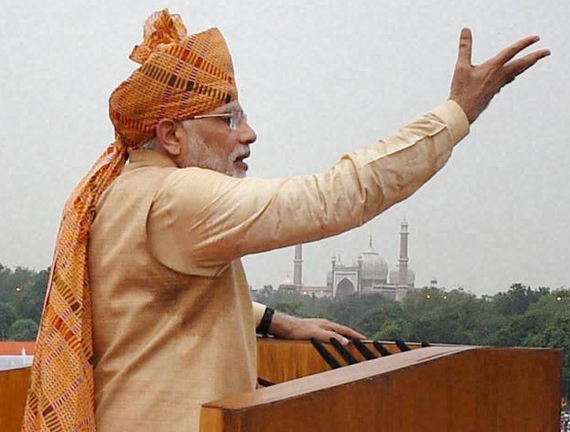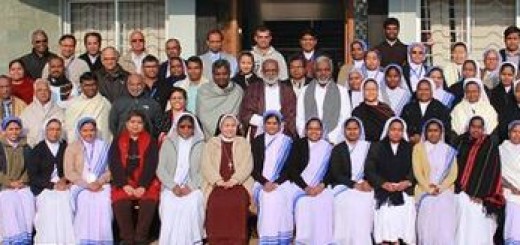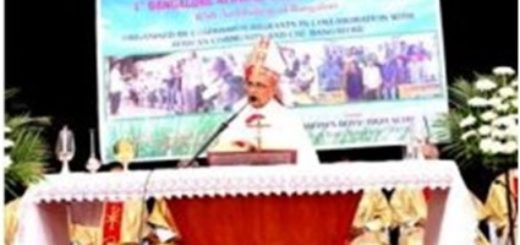The sum of Mod’s Diplomacy is Zero

State of the Union
(Note: Diplomacy, it is said, consists in keep firing even when you are out of all ammunition. Democracy is said to be the talking shop and gift of the gab is said to be the sine-qua-non for a politician to rise up to positions of power. That accounts for most of the success in Modi’s case and failure in Manmohan (of Mummum) Singh’s case. May be Modiji is giving an exaggerated exhibition of his capacity as a public speaker. But it has to be admitted he made use of it to win friends and influence people, to win national election and build up foreign relations systematically with neighboring as well as well as far flung countries. When anyone shakes hands with Modi and looks straight into his eyes, the beholder doesn’t see him(Modi) but the whole people of India, our PM is reported to have said. This could be true at least for people in other countries he was visiting for the first time in Europe or the Americas who are not in close touch with India. To these countries Modiji has been showcasing India all through his 29 foreign trips. According to the author of this article it was all a publicity stunt, all sound and fury with no substance. That may be an exaggeration, since virtue stands in the middle. But all seems to agree that Modiji should have spend much more time to capture the good will of all sections of people at home than those in far flung countries, friendly or otherwise. In any case, it needs more time to see if the good will generated abroad will produce tangible good results at home by way of make in India or Make a more powerful India. james kottoor)
In the past 16 months the Prime Minister of India has travelled aboard 29 times. It roughly translates into two overseas visits a month. In the next four months another eight trips are on the anvil. Are there any substantive upsides of these outings for India? In the initial flush of victory, the Prime Minister invited all the Saarc and regional leaders to his coronation and triumphantly proclaimed a neighbourhood-first policy. In pursuance of that Narendra Modi visited Bhutan, Nepal, Sri Lanka and Myanmar. The relationship with Nepal today is stretched to almost breaking point, with the Nepalese Constituent Assembly cocking a snook at India’s purported concerns.
The grapevine has it that the main reason for New Delhi’s dander is not as much the denial of equity to the plains people and the indigenous inhabitants as it is the refusal of the Nepalese leadership to formally declare Nepal a Hindu Rashtra, which the Rashtriya Swayamsevak Sangh ostensibly wanted. They rubbed it in by enshrining secularism in their Constitution, notwithstanding the creative spin that they may have imparted to the concept to mollify the forces of right reaction in New Delhi.
The drift of both Sri Lanka and Maldives into the Chinese orbit has only quickened with the advent of this government. The Maldivian President has virtually told New Delhi to take a walk by continuing the persecution of former President Mohamed Nasheed who had sought refuge in the Indian embassy. Sri Lanka is continuing with the policy of allowing docking facilities to Chinese naval assets. China has replaced Japan as the numero uno donor to Sri Lanka. In Afghanistan, India is not even a player in the game after the withdrawal of the Nato-led International Security Assistance Force in December 2014 and the American plan to hitch their saddles and ride off into the sunset.
Not only is the government of President Mohammad Ashraf Ghani and Chief Executive Abdullah Abdullah leaning towards Pakistan, but even negotiations between the Afghan government and the Taliban are midwifed by the Inter-Services Intelligence-Chinese Intelligence combine, with the Americans playing chaperone, both in Urumqi in China and later in Murree, Pakistan. Serving and former senior US officials bluntly and publicly articulate that they see India as a part of the problem, and not the solution, in Afghanistan.
The relationship with China is also going nowhere if not heading south. The buzz in strategic circles is that during his visit to Xi’an, Beijing and Shanghai in May when Mr Modi expressed his unhappiness at the slow pace of border negotiations to President Xi Jinping and Prime Minister Li Keqiang, he was coldly rebuffed and the gist of the Chinese brush-off even found its way onto the Chinese Sina Weibo and other social media platforms.
Pakistan is a case of the Prime Minister’s left hand not knowing what even its fingers are doing. In a span of one year the Prime Minister invited Nawaz Sharif to his coronation in May 2014, then three months later cancelled the foreign secretary-level talks because the Pakistani high commissioner met the Hurriyat. He then sent his foreign secretary on a tour of South Asia to find a fig leaf of an excuse to land up in Islamabad to resume the dialogue.
It was followed by the ecstasy of Ufa, on the sidelines of the Brics summit, with an agreement to hold a dialogue at the level of the national security advisers. However, even before the ink had dried on the joint statement read out by the two foreign secretaries, the world witnessed the riotous exhibition of the Indian foreign minister and the NSA of Pakistan paying verbal, if not virtual, kabaddi over the airwaves. The latest bout is playing itself out in the United Nations. All these shenanigans have once again ensured the hyphenation of a relationship that took the United Progressive Alliance 10 long years to de-hyphenate. From the sublime to the ridiculous is the only expression to describe Mr Modi’s handling of the Pakistani interface.
Similarly, with the United States there is no “big idea” to take the relationship to the next level. In the five interactions that Mr Modi has had with US President Barack Obama, he has not been able to walk away with even a single big takeaway. Despite the histrionics in the Indian media space the cold reality is that on both his visits to the US Mr Modi was given short shrift by Mr Obama. In fact, on the most recent visit, the snub could not have been more obvious with Mr Obama hosting a state banquet for Mr Xi and fobbing off Mr Modi with a working meal.
This is despite the National Democratic Alliance government completely subscribing to the American vision of regional security on the Asian continent, thus virtually becoming a junior partner if not a client state of the United States. This is evidenced by the imminent joint meetings between the foreign ministers of the US, Japan and India, the proposed ocean dialogue, cooperation between India and the US in developing an aircraft carrier, and the inclusion of Japan, and possibly Australia, in the India-US naval exercises — the notorious quad.
All this and much more is playing itself out under the auspices of the India-US Joint Strategic Vision for the Asia-Pacific and Indian Ocean, a policy document that India was practically coerced into signing as the quid pro quo for Mr Obama agreeing to be the chief guest at the Republic Day parade earlier this year. This will have serious implications on the independence of our foreign policy and our ability and flexibility to navigate between the various emerging poles of the global power dynamic in the 21st century.
If it wasn’t humiliating it could have been termed hilarious: While Mark Zucker-berg of Facebook fame flew to Washington DC to pay his respects to the Chinese President by marking his presence at Mr Obama’s state dinner, the Indian Prime Minister flew to the West Coast to pay obeisance to the founder of the new media enterprise. Incidentally, Facebook, Twitter and all the other Western new media platforms are not allowed to operate in China. They are all blocked.
One wonders why Narayana Murthy was never accorded this courtesy with the Prime Minister making a dedicated visit to the Infosys headquarters in Bengaluru or, for that matter, what is happening to the ambitious proposal cleared by the UPA Cabinet to build foundries for chip manufacturing which would put India at the heart of the new economy rather than merely remaining a body-shopping paradise. Has that also been given an ignominious burial to kowtow to the old masters of the new information order?
Even on the entire business of a permanent seat on the United Nations Security Council, the reality is that there is no text for negotiations before the United Nations General Assembly. What is there before it is a compilation of the opinions of various countries. Three members of the Security Council with veto powers — the US, Russia and China — have not given their views. In side letters to the compilation the US and Russia have all but reneged on the lip service they have been paying to India’s claim to a permanent seat with veto power.
China’s attitude towards India leaves nothing to the imagination and will only harden as India wittingly drifts into the US orbit. In any case, the conundrum with the expansion of the UNSC has been who do you keep out rather than whom do you take in. The G-4 gang-up may not be the smartest way for India to press its claim. With Europe also, except for the promise to buy arms from some countries, there is no fresh impetus or traction to the relationship. The negotiations on the free trade agreement with the European Union remain deadlocked. It stands where the UPA had left it in the May of 2014.
What then has been achieved except for collecting the diaspora in stadia around the world and pontificating on all and sundry? The simple answer is: zilch. There is an inherent danger in whipping up diasporic xenophobia about India’s great-power ambitions, exploiting their nostalgia and search for a sense of identity in societies where they are materially well-off but have not been able to root themselves. You set the Indian overseas community up as a vulnerable object and a soft target. It even impedes the process of their natural assimilation in the adoptive countries of their choice. With the immigrant crisis in Europe at a flash point and an inevitable backlash a reality, the Prime Minister needs to be very careful about his histrionics.
Furthermore, it irks the host countries which may be indulgent the first time around but may not be that magnanimous if such gigs are perceived as the routine and not the exception. It belittles India to witness the Prime Minister working as a cheerleader for some of the most decadent sheikhs in the Gulf by getting the Indian community to raise slogans in their support. That is the inherent hazard in the spectaclisation of diplomacy. Not only will it pay no dividends to India, but questions are also now being asked — Who, pray, is writing the cheque for these one-man and half-an-act theatrics?
Deccan Chronicle | Manish Tewari | October 03, 2015
The writer is a lawyer and a former Union minister. The views expressed are personal. Twitter handle @manishtewari
















